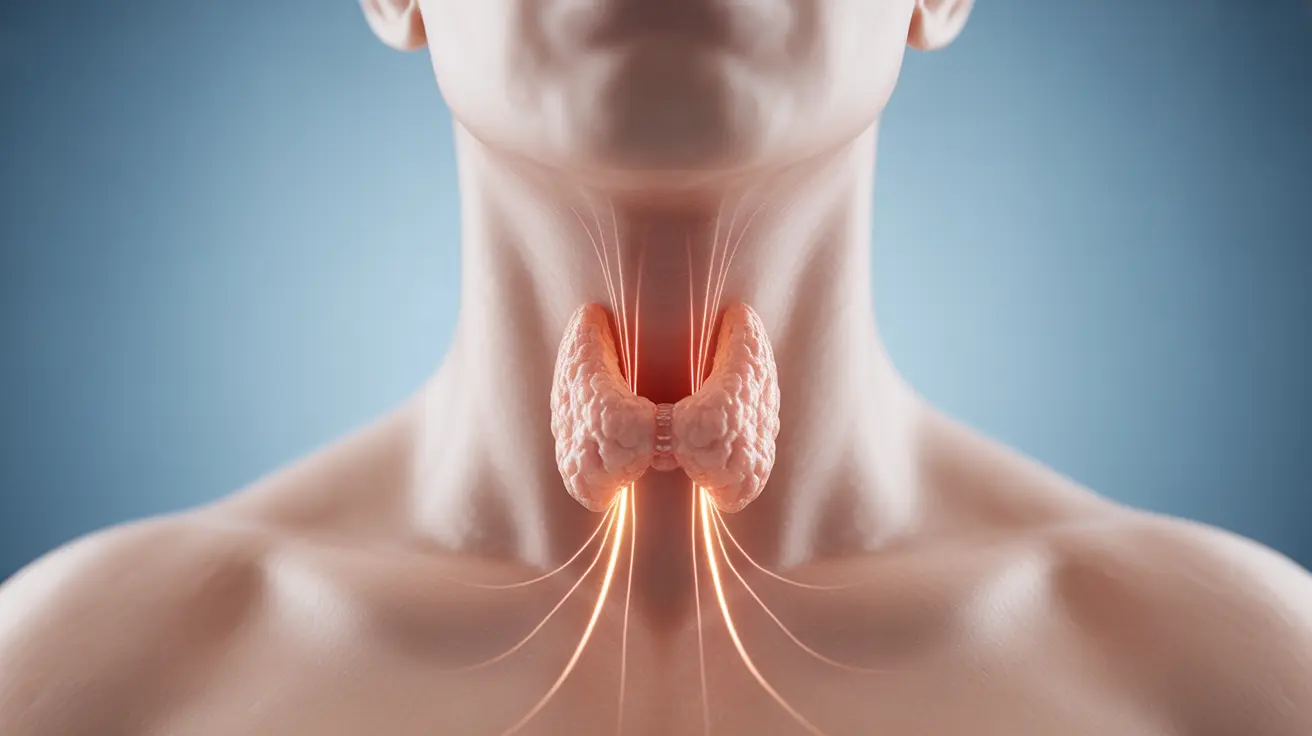Thyroid disorders can significantly impact your overall health and quality of life. Two of the most common thyroid conditions are hypothyroidism and hyperthyroidism, which represent opposite ends of the thyroid function spectrum. Understanding the key differences between these conditions is crucial for proper diagnosis and treatment.
While both conditions affect the thyroid gland, they produce distinctly different effects on the body's metabolism and various organ systems. This comprehensive guide will help you understand the unique characteristics, symptoms, and treatment approaches for both hypothyroidism and hyperthyroidism.
Understanding Thyroid Function
The thyroid gland plays a vital role in regulating numerous bodily functions through the production of thyroid hormones. These hormones control metabolism, heart rate, body temperature, and energy levels. When the thyroid produces too little or too much hormone, it leads to hypothyroidism or hyperthyroidism, respectively.
Distinguishing Symptoms
Hypothyroidism Symptoms
When the thyroid gland is underactive, it produces the following characteristic symptoms:
- Fatigue and weakness
- Weight gain despite normal eating habits
- Increased sensitivity to cold
- Dry skin and brittle hair
- Depression and mood changes
- Muscle aches and joint pain
- Constipation
- Irregular or heavy menstrual periods
Hyperthyroidism Symptoms
An overactive thyroid typically causes these distinctive signs:
- Unexplained weight loss
- Rapid heartbeat or palpitations
- Anxiety and nervousness
- Heat intolerance
- Tremors in hands and fingers
- Frequent bowel movements
- Light or irregular menstrual periods
- Sleep difficulties
Causes and Risk Factors
Hypothyroidism often results from:
- Hashimoto's thyroiditis
- Surgical removal of the thyroid
- Radiation therapy
- Certain medications
- Iodine deficiency
Hyperthyroidism can be caused by:
- Graves' disease
- Toxic nodular goiter
- Thyroiditis
- Excessive iodine intake
- Some medications
Diagnosis and Testing
Doctors typically diagnose thyroid disorders through comprehensive blood tests that measure:
- Thyroid-stimulating hormone (TSH)
- Free thyroxine (T4)
- Free triiodothyronine (T3)
Additional diagnostic tools may include thyroid antibody tests, radioactive iodine uptake tests, or thyroid scans.
Treatment Approaches
Hypothyroidism Treatment
The primary treatment for hypothyroidism involves:
- Synthetic thyroid hormone replacement (levothyroxine)
- Regular monitoring of thyroid levels
- Dose adjustments as needed
- Lifestyle modifications
Hyperthyroidism Treatment
Treatment options for hyperthyroidism include:
- Anti-thyroid medications
- Radioactive iodine therapy
- Beta-blockers for symptom management
- Surgery in specific cases
- Regular medical monitoring
Lifestyle Management
Regardless of the type of thyroid disorder, certain lifestyle modifications can help manage symptoms:
- Maintaining a balanced diet
- Regular exercise appropriate to your condition
- Stress management techniques
- Adequate sleep
- Regular medical check-ups
Frequently Asked Questions
What are the common symptoms that help differentiate hypothyroidism from hyperthyroidism?
Hypothyroidism typically causes weight gain, fatigue, cold sensitivity, and slowed metabolism, while hyperthyroidism leads to weight loss, anxiety, heat intolerance, and increased metabolism. The key is that symptoms are often opposite of each other, reflecting the underlying hormone imbalance.
What causes hypothyroidism and hyperthyroidism, and how are these conditions diagnosed?
Hypothyroidism is commonly caused by autoimmune conditions like Hashimoto's thyroiditis, while hyperthyroidism often results from Graves' disease. Both conditions are diagnosed through blood tests measuring thyroid hormone levels, particularly TSH, T3, and T4.
How are hypothyroidism and hyperthyroidism treated, and what are the management options?
Hypothyroidism is treated with synthetic thyroid hormone replacement therapy, while hyperthyroidism may be managed with anti-thyroid medications, radioactive iodine treatment, or surgery. Both conditions require ongoing monitoring and dose adjustments.
Can hypothyroidism and hyperthyroidism occur in the same person, and how does that affect treatment?
Yes, some people can experience both conditions at different times, particularly those with autoimmune thyroid disorders. Treatment must be carefully managed and adjusted based on current thyroid function and symptoms.
What lifestyle changes or precautions can help manage symptoms of hypothyroidism or hyperthyroidism?
Key lifestyle changes include maintaining a balanced diet, regular exercise, stress management, and consistent sleep patterns. It's also important to take medications as prescribed and attend regular follow-up appointments with healthcare providers.




